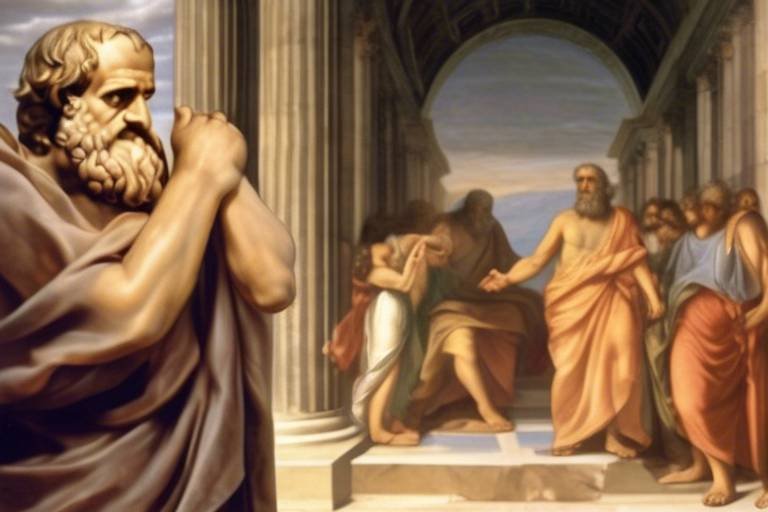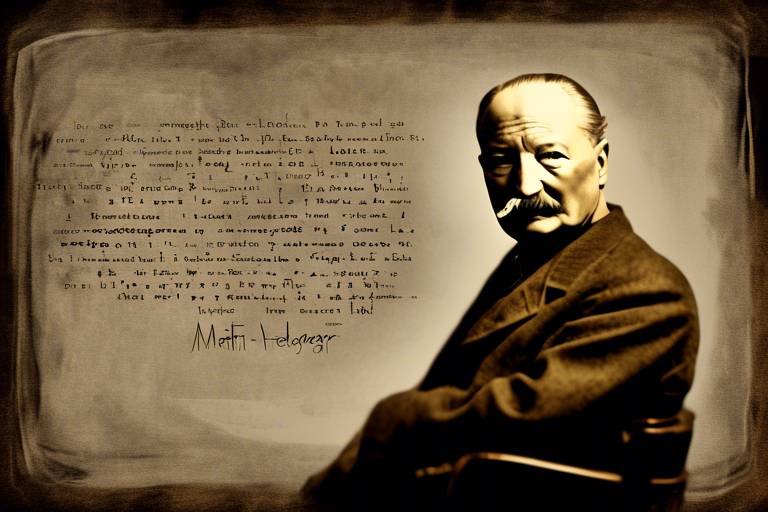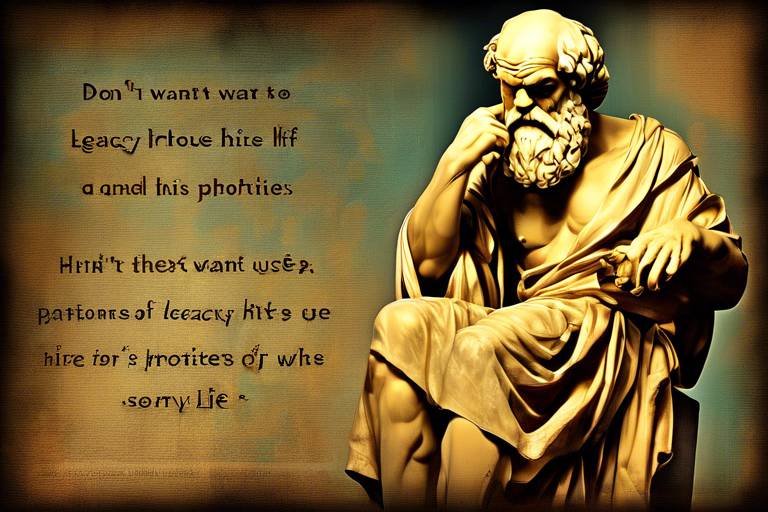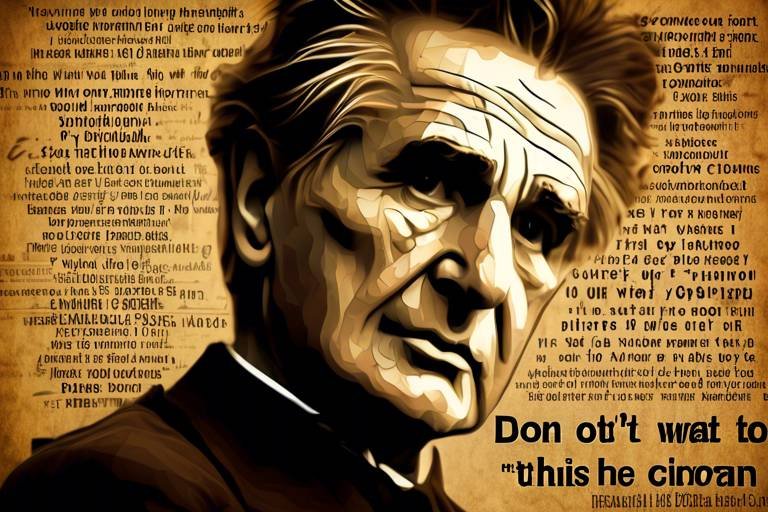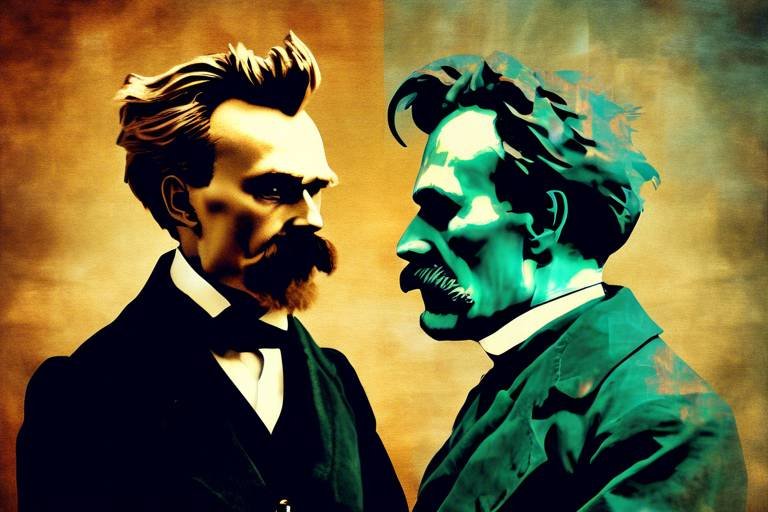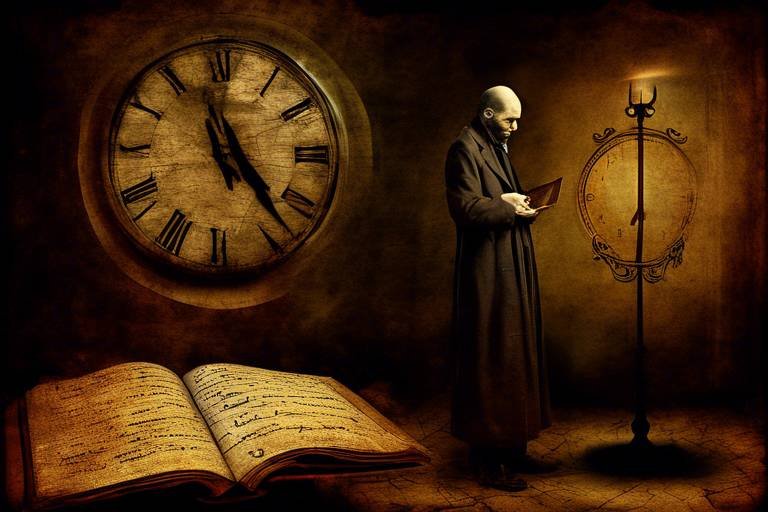A Brief Overview of Jean-Paul Sartre's Existential Philosophy
Existentialism, a philosophical movement that has captivated thinkers and laypeople alike, finds one of its most compelling advocates in Jean-Paul Sartre. His exploration of the human condition delves into the very fabric of existence, challenging us to reconsider our understanding of life, freedom, and meaning. At the heart of Sartre's philosophy lies the audacious claim that existence precedes essence. This radical idea suggests that we are not born with a predetermined purpose; instead, we create our own essence through our actions and choices. Imagine a blank canvas, waiting for the artist to bring it to life—this is akin to how Sartre views human existence.
Sartre's existential philosophy is not merely an abstract theory; it resonates deeply with our everyday experiences. He invites us to confront the reality that we are responsible for our choices, and with that responsibility comes an exhilarating sense of freedom. However, this freedom is a double-edged sword. While it empowers us to shape our destinies, it also imposes a heavy burden. Sartre's insights compel us to reflect on our lives and the decisions we make, urging us to embrace our freedom while acknowledging the weight of our responsibilities.
Through his works, Sartre paints a vivid picture of the struggle for authenticity in a world often filled with bad faith, where individuals deceive themselves to escape the anxiety of true freedom. He challenges us to live authentically, to make choices that align with our genuine selves rather than conforming to societal expectations. This journey towards authenticity is fraught with existential anguish, a feeling of disorientation in the face of an absurd world. Yet, it is precisely this anguish that can lead us to a deeper understanding of our existence and the meaning we seek.
As we navigate Sartre's existential landscape, we encounter the absurdity of life head-on. Rather than shying away from it, Sartre encourages us to confront the absurd and to actively construct our own significance. This process is not solitary; our relationships with others play a crucial role in shaping our understanding of freedom and existence. Through interactions and connections, we find reflections of ourselves, further enriching our existential journey.
In the following sections, we will delve deeper into these key concepts of Sartre's existential philosophy, exploring the intricacies of freedom, responsibility, and the quest for meaning in an absurd world. Join us as we unravel the profound insights of one of the 20th century's most influential thinkers.
- What does Sartre mean by "existence precedes essence"?
Sartre's statement suggests that individuals are not born with an inherent purpose; rather, they create their own meaning through their actions and choices. - How does freedom relate to responsibility in Sartre's philosophy?
Sartre argues that with the freedom to make choices comes the responsibility for those choices, emphasizing that individuals must own the consequences of their actions. - What is "bad faith" in existentialism?
Bad faith refers to the self-deception that individuals engage in to avoid the anxiety associated with true freedom and responsibility. - How does Sartre view relationships in the context of existentialism?
Sartre believes that relationships with others are essential in shaping our identity and understanding of freedom, as they reflect and influence our choices.
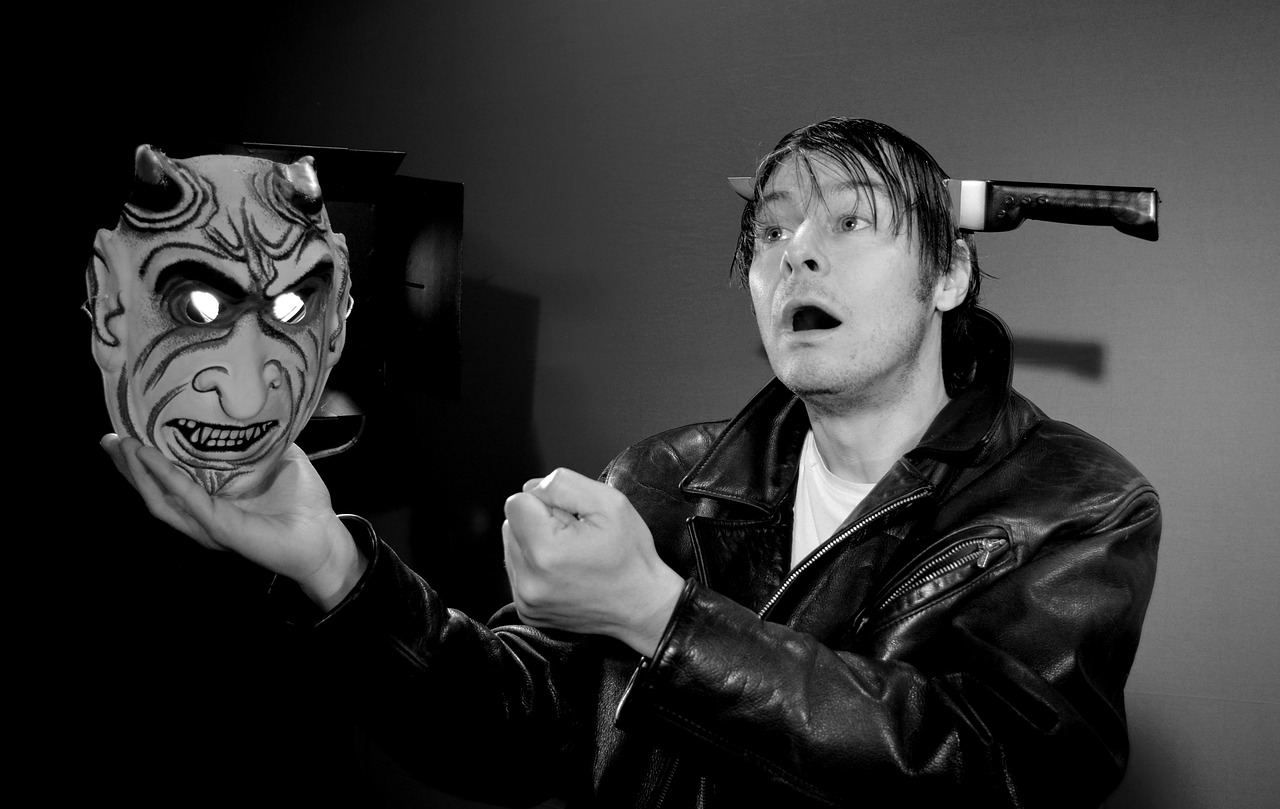
The Essence of Existence
Sartre famously stated that existence precedes essence, a phrase that has echoed through the corridors of philosophical thought like a resonant bell. What does this mean, you ask? Well, it flips the traditional notion of existence on its head! Instead of being born with a predetermined purpose or essence, Sartre argues that we, as individuals, are thrust into this world without any inherent meaning. It’s like being handed a blank canvas and a palette of colors, with the freedom to paint your own masterpiece. The essence of who we are is not given; it is created through our choices and actions.
This foundational idea challenges the very fabric of how we perceive ourselves and our lives. Imagine walking into a room filled with mirrors, each reflecting different versions of you. Some mirrors show a person defined by societal norms, others by family expectations, and still others by personal desires. Sartre invites us to break those mirrors and to step into a reality where we are the artists of our existence. Our choices become the brushstrokes that define our essence, and in this sense, we are all creators of our own destinies.
But here’s the kicker: with this freedom comes an immense responsibility. If we are the architects of our own lives, then we must also bear the weight of our decisions. Every choice we make not only shapes our identity but also impacts the world around us. It’s a bit like a domino effect; one action can lead to a cascade of consequences, both expected and unexpected. For instance, choosing to pursue a specific career path not only affects your life but can also influence your family, friends, and even future generations. This interconnectedness emphasizes the importance of being mindful of our choices.
In essence, Sartre’s philosophy encourages us to embrace this freedom and responsibility wholeheartedly. It’s about recognizing that we are not mere passengers on the journey of life but rather the drivers of our own vehicles. We must navigate through the twists and turns, making decisions that resonate with our true selves. This journey toward self-discovery and authenticity is what gives our lives meaning. So, the next time you find yourself at a crossroads, remember: you have the power to choose your path, to create your essence, and to define your existence.
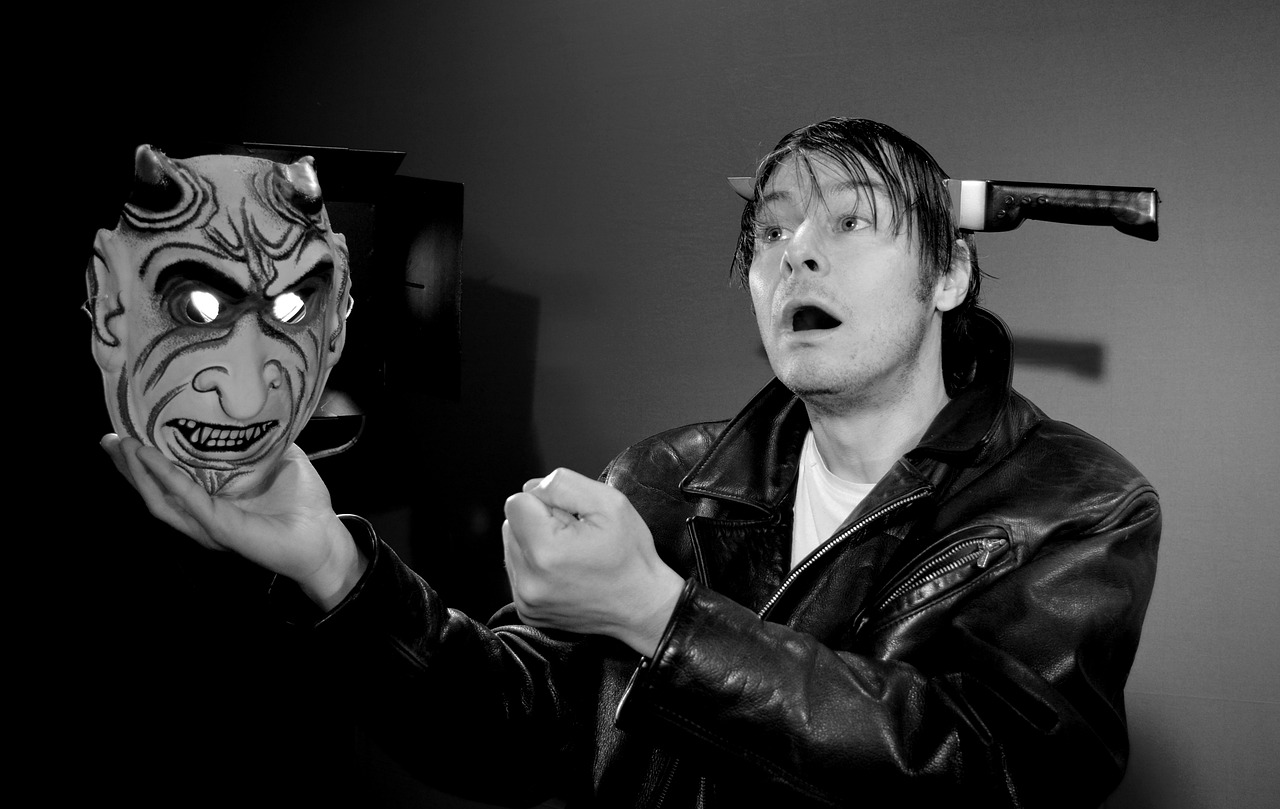
existence precedes essence,
This article explores the key concepts of existentialism as articulated by Jean-Paul Sartre, including freedom, responsibility, and the nature of existence, providing insights into his influential philosophical ideas.
Sartre famously stated that existence precedes essence, suggesting that individuals create their own meaning through actions rather than adhering to predetermined purposes. This foundational idea of existentialism flips the traditional philosophical notion on its head. Instead of being born with a fixed essence or purpose, Sartre argues that we first exist and then define ourselves through our choices and actions. Think of it like an artist who starts with a blank canvas; the first strokes don’t dictate the final masterpiece, but rather, each choice contributes to the overall image.
In a world where meaning is not handed down from above, individuals are encouraged to embrace their freedom. This freedom is exhilarating but also daunting. Imagine standing at a crossroads with countless paths before you; each choice you make shapes who you are. Sartre's philosophy invites us to take ownership of our lives, to recognize that we are the architects of our own destinies. The implications of this idea are profound: it places the responsibility of meaning squarely on our shoulders. We are not merely passive observers in life; we are active participants, crafting our essence through every decision we make.
To illustrate this concept further, consider the following table that summarizes the distinction between existence and essence:
| Existence | Essence |
|---|---|
| Refers to the state of being alive and present in the world. | Refers to the intrinsic nature or purpose that defines an entity. |
| Is subjective and varies from person to person. | Is often seen as predetermined or fixed in traditional philosophy. |
| Is created through individual choices and actions. | Is imposed by external forces or societal norms. |
Ultimately, Sartre challenges us to reflect on our lives and consider how we can create meaning in an indifferent universe. It’s a call to action, urging us to step away from complacency and actively shape our identities. In doing so, we confront the reality that our choices not only define who we are but also how we relate to the world around us. So, what kind of essence will you create?
Central to Sartre's philosophy is the notion of radical freedom, which posits that individuals are free to make choices. This section examines the implications of freedom and the weight of responsibility that accompanies it.
With freedom comes the burden of choice. Sartre argues that every decision reflects one's values and beliefs, leading to an exploration of how choices shape identity and existence.
Authenticity involves making choices that are true to oneself. This subheading discusses how Sartre encourages individuals to embrace their freedom and strive for authenticity in their lives.
Sartre introduces the concept of bad faith, where individuals deceive themselves to escape the anxiety of freedom. This section explores how bad faith manifests in everyday life and its philosophical implications.
Sartre describes existential anguish as the feeling of disorientation and confusion in the face of an absurd world. This subheading analyzes the causes of this anguish and its significance in existential thought.
Sartre acknowledges the absurdity of life, arguing that meaning is not inherent but must be created. This section explores how individuals confront the absurd and construct their own significance.
This subheading examines various ways individuals can confront the absurdity of existence, emphasizing the importance of personal agency and creativity in crafting a meaningful life.
Sartre’s existentialism also highlights the role of relationships in shaping identity. This section discusses how interactions with others influence our understanding of freedom and existence.
- What does "existence precedes essence" mean? It means that individuals first exist and then define their essence through choices and actions.
- How does Sartre view freedom? Sartre sees freedom as radical and inherent, but it comes with the heavy burden of responsibility.
- What is bad faith? Bad faith is a form of self-deception where individuals avoid the anxiety of freedom by lying to themselves.
- Why is authenticity important in Sartre's philosophy? Authenticity is crucial because it ensures that individuals make choices true to themselves, rather than conforming to societal expectations.
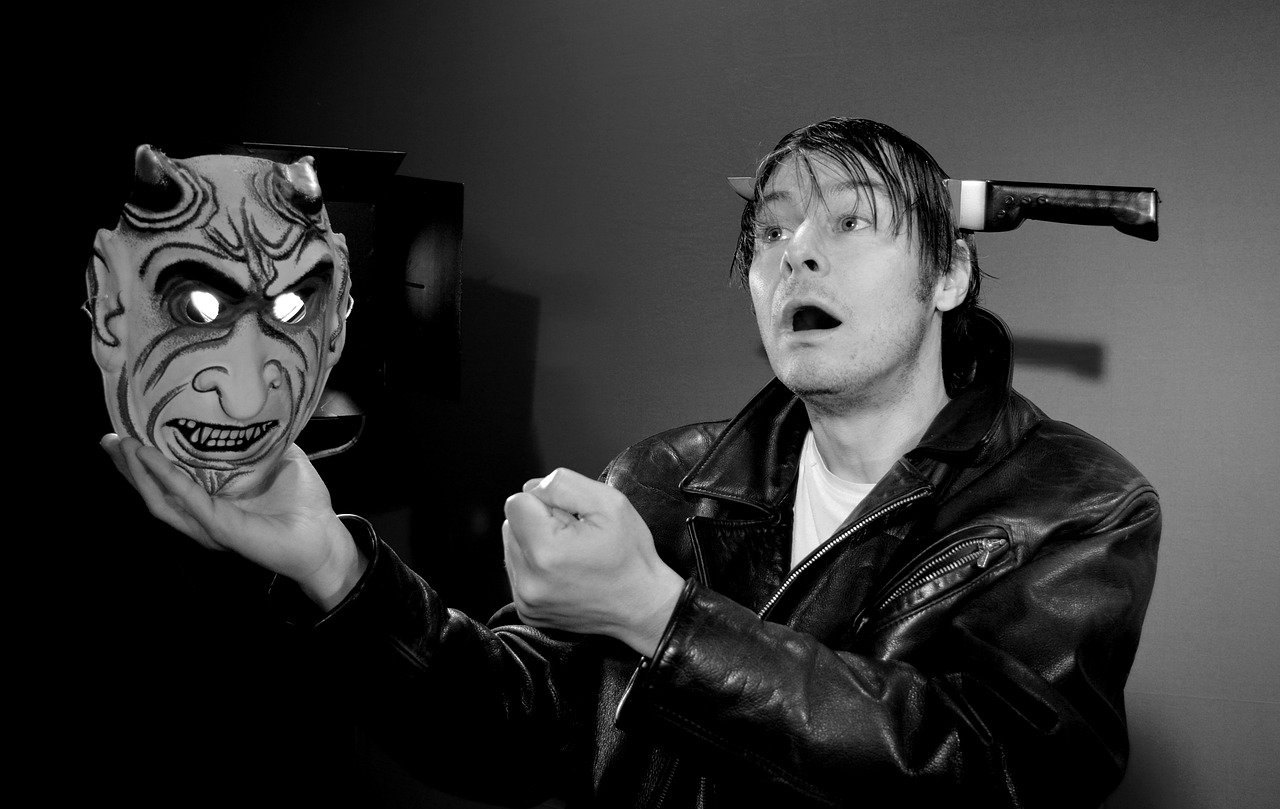
suggesting that individuals create their own meaning through actions rather than adhering to predetermined purposes. This subheading delves into this foundational idea of existentialism.
This article explores the key concepts of existentialism as articulated by Jean-Paul Sartre, including freedom, responsibility, and the nature of existence, providing insights into his influential philosophical ideas.
Sartre famously stated that existence precedes essence, suggesting that individuals create their own meaning through actions rather than adhering to predetermined purposes. This foundational idea of existentialism is not just a philosophical statement; it's a call to arms for anyone who feels trapped by societal norms or expectations. Instead of being mere puppets of fate or biology, we are the authors of our own stories, wielding the pen with every decision we make. Imagine being handed a blank canvas and a palette of colors; the choice of what to paint is entirely yours. This is the essence of Sartre’s philosophy—an invitation to embrace the chaos and beauty of existence.
In a world that often tries to impose meaning upon us, Sartre’s assertion liberates us. It empowers individuals to seek out their own significance through actions and choices. Rather than waiting for life to hand us a script, we must actively participate in writing our own narratives. This idea can be both exhilarating and daunting. On one hand, it grants us the freedom to explore our passions and desires; on the other, it places the weight of responsibility squarely on our shoulders.
Consider the following points that illustrate this concept:
- Personal Responsibility: Every action we take is a reflection of our values and beliefs, shaping our identity.
- Active Participation: We are not passive observers; we must engage with life to derive meaning.
- Rejection of Predefined Paths: Sartre encourages us to question societal norms and forge our own paths.
By rejecting the idea that we are born with a set purpose, Sartre invites us to confront the absurdity of existence. It’s a bit like being handed a jigsaw puzzle with no reference image; you must find the pieces that fit together to create your own picture of meaning. This approach fosters a sense of creativity and agency, allowing individuals to explore various avenues and experiences in their quest for significance.
Ultimately, embracing this existential freedom means acknowledging that while we may face uncertainty and ambiguity, we hold the power to create meaning in our lives. It’s a journey filled with exploration, self-discovery, and, at times, discomfort. Yet, it is through this very discomfort that we can truly understand ourselves and our place in the world. Sartre’s philosophy is not just a theory; it’s a way of life that champions authenticity and the relentless pursuit of personal truth.
Central to Sartre's philosophy is the notion of radical freedom, which posits that individuals are free to make choices. This section examines the implications of freedom and the weight of responsibility that accompanies it.
With freedom comes the burden of choice. Sartre argues that every decision reflects one's values and beliefs, leading to an exploration of how choices shape identity and existence.
Authenticity involves making choices that are true to oneself. This subheading discusses how Sartre encourages individuals to embrace their freedom and strive for authenticity in their lives.
Sartre introduces the concept of bad faith, where individuals deceive themselves to escape the anxiety of freedom. This section explores how bad faith manifests in everyday life and its philosophical implications.
Sartre describes existential anguish as the feeling of disorientation and confusion in the face of an absurd world. This subheading analyzes the causes of this anguish and its significance in existential thought.
Sartre acknowledges the absurdity of life, arguing that meaning is not inherent but must be created. This section explores how individuals confront the absurd and construct their own significance.
This subheading examines various ways individuals can confront the absurdity of existence, emphasizing the importance of personal agency and creativity in crafting a meaningful life.
Sartre’s existentialism also highlights the role of relationships in shaping identity. This section discusses how interactions with others influence our understanding of freedom and existence.
- What does "existence precedes essence" mean?
This phrase means that individuals are not born with a predetermined purpose; instead, they create their own meaning through their choices and actions. - How does Sartre view freedom?
Sartre sees freedom as radical, meaning that individuals have the power to make their own choices, which comes with the responsibility for those choices. - What is bad faith?
Bad faith is a concept where individuals deceive themselves to avoid the anxiety that comes with freedom and responsibility.

Freedom and Responsibility
At the heart of Jean-Paul Sartre's existential philosophy lies the profound concept of radical freedom. This idea suggests that we are not merely passive observers in our lives; instead, we are the architects of our own destinies. Imagine standing at a crossroads, where every path represents a choice, each with its own set of consequences. Sartre argues that we possess the power to choose our direction, but with this freedom comes an equally heavy burden: the responsibility for our choices. This duality can be both exhilarating and terrifying. After all, if we are the ones to create our meaning, we must also bear the weight of that creation.
So, what does it mean to truly embrace our freedom? It means acknowledging that every decision we make is a reflection of our values and beliefs. Whether it's choosing a career, forming relationships, or even deciding how to spend our free time, each choice shapes our identity. Sartre believed that in a world devoid of intrinsic meaning, we must actively engage in the process of self-definition. This means that our lives are not just a series of random events but a tapestry woven from the threads of our decisions. For instance, if you choose to pursue a career in art, you are not just picking a job; you are expressing who you are and what you value.
However, the freedom to choose can lead to feelings of anxiety and overwhelm. Sartre understood this struggle, and he referred to it as the "burden of choice." When faced with multiple options, it’s easy to feel lost or paralyzed by the fear of making the wrong decision. This is where the concept of authenticity comes into play. Sartre encourages individuals to make choices that resonate with their true selves, rather than conforming to societal expectations or pressures. Authenticity is about being genuine and true to oneself, even when the path is fraught with uncertainty.
Yet, in our quest for authenticity, we must also confront the idea of bad faith. This concept describes a state where individuals deceive themselves to escape the anxiety associated with their freedom. It’s like wearing a mask that hides our true selves, allowing us to avoid the discomfort of making difficult choices. For example, someone might stay in a job they despise simply because it’s comfortable, convincing themselves that they have no other options. In doing so, they relinquish their freedom and responsibility, opting for the illusion of security instead.
Ultimately, Sartre's exploration of freedom and responsibility urges us to recognize that while we are free to make choices, we must also accept the consequences that come with them. Embracing this responsibility can lead to a more fulfilling and authentic existence. It's a call to action—an invitation to live deliberately and with intention. By acknowledging our freedom and the weight of our choices, we can navigate the complexities of life with greater confidence and clarity.
- What does Sartre mean by "existence precedes essence"?
Sartre's phrase suggests that individuals define their own meaning and purpose through their actions, rather than adhering to a predetermined essence. - How does freedom relate to responsibility in Sartre's philosophy?
Sartre posits that with the freedom to choose comes the responsibility for those choices, emphasizing that individuals must bear the consequences of their actions. - What is bad faith according to Sartre?
Bad faith is the act of deceiving oneself to avoid the anxiety of freedom, often by conforming to societal norms instead of pursuing one's true desires.

The Burden of Choice
With freedom comes a profound weight: the burden of choice. Jean-Paul Sartre believed that every decision we make is not merely a reflection of our preferences, but a deep manifestation of our values and beliefs. Think about it—when you choose a career path, a partner, or even a simple meal, you’re not just picking options; you’re sculpting your identity, crafting who you are in the world. Each choice can feel like a fork in the road, leading you down different paths of existence, and that can be both exhilarating and terrifying.
Imagine standing at a crossroads, where every direction represents a potential future, each one lined with its own set of consequences. This is the essence of Sartre's philosophy—the idea that we are not just passive participants in life, but active creators of our own destiny. This freedom to choose can be liberating, but it also comes with a hefty responsibility. The weight of knowing that our choices define us can lead to a paralyzing fear of making the wrong decision. It’s like being handed a blank canvas and a palette of colors, only to feel overwhelmed by the endless possibilities. What if you choose the wrong color? What if your painting turns out to be a mess?
In this context, Sartre's concept of choice becomes a double-edged sword. On one hand, it empowers us to shape our lives according to our desires and aspirations. On the other hand, it forces us to confront the reality that each choice carries consequences—some of which we may not be ready to face. This burden can lead to what Sartre calls "existential angst," a deep-seated anxiety that arises from the weight of our freedom. It’s the nagging feeling that we are responsible for not only our own lives but also the impact our choices have on others.
To illustrate this burden, consider the following scenarios:
- Choosing a Career: Selecting a profession not only shapes your daily life but also reflects your values and aspirations. Are you following your passion, or are you succumbing to societal pressures?
- Ending a Relationship: Deciding to end a romantic relationship can be heart-wrenching. It’s a choice that affects not just you, but also your partner, friends, and family.
- Making Ethical Decisions: Every day, we face choices that test our moral compass. How do we decide what is right or wrong, especially when the stakes are high?
These examples highlight the complexity of choice in our lives. Sartre encourages us to embrace this burden, to acknowledge that while it may be heavy, it is also what makes us authentically human. By accepting the weight of our decisions, we can begin to live more intentionally, making choices that resonate with our true selves rather than defaulting to societal expectations or fears. In doing so, we not only define our own existence but also contribute to the collective tapestry of human experience.
Ultimately, the burden of choice is a call to action. It invites us to engage with our freedom actively, to reflect on our values, and to make decisions that align with who we truly are. So the next time you find yourself at a crossroads, remember: it’s not just about choosing a path; it’s about choosing who you want to be.
- What is the main idea behind Sartre's burden of choice? Sartre emphasizes that with freedom comes the responsibility of making choices that define our identity and existence.
- How does choice affect our identity? Each choice we make reflects our values and beliefs, shaping who we are and how we relate to the world.
- What is existential angst? It is the anxiety that arises from the awareness of our freedom and the weight of our choices.
- Can we escape the burden of choice? While we cannot escape it, we can learn to embrace it, making choices that resonate with our authentic selves.

Authenticity in Decision-Making
When we talk about , we're diving into one of the most profound aspects of Sartre's existential philosophy. Sartre believed that true freedom comes with the responsibility to make choices that genuinely reflect who we are. Imagine standing at a crossroads, where each path represents a different choice. The question is: which path truly resonates with your inner self? This is the essence of authenticity—a commitment to living in accordance with your values and beliefs, rather than simply following societal expectations or external pressures.
Authenticity isn't just about making choices; it's about understanding the why behind those choices. Sartre encourages us to dig deep, to ask ourselves questions like, "What do I truly want?" or "What aligns with my core values?" This self-reflection is crucial, as it allows us to break free from the chains of conformity and embrace our individuality. In a world that often pushes us toward sameness, choosing authenticity can feel like a radical act.
However, pursuing authenticity can be challenging. It requires us to confront our fears, insecurities, and the potential backlash from those around us. For instance, consider a person who dreams of becoming an artist but feels pressured to pursue a more conventional career path. The struggle between societal expectations and personal desires can create a profound internal conflict. Sartre would argue that it's essential for this individual to acknowledge their passion for art, despite the risks involved. By doing so, they take a step toward living authentically.
To further illustrate this concept, let's break down some key elements of authenticity in decision-making:
- Self-awareness: Understanding your values, desires, and motivations is the first step toward authentic decision-making.
- Reflection: Taking the time to reflect on your choices and their alignment with your true self is essential.
- Bravery: Embracing the courage to make decisions that may not align with societal norms but resonate with your authentic self.
- Accountability: Owning your choices and their consequences is a hallmark of authenticity.
In essence, authenticity in decision-making is about forging a path that is uniquely yours. It's a continuous journey of self-discovery where each choice reflects your true identity. By prioritizing authenticity, you not only enrich your own life but also inspire others to do the same. After all, when we live authentically, we create a ripple effect that encourages those around us to embrace their own freedom and responsibility. So, the next time you face a decision, ask yourself: "Is this choice a true reflection of who I am?" The answer could lead you to a more fulfilling and authentic life.
- What is authenticity in decision-making? Authenticity in decision-making refers to the practice of making choices that genuinely reflect one's values and beliefs, rather than conforming to external pressures.
- Why is authenticity important? Authenticity is important because it fosters a deeper sense of self-awareness and fulfillment, allowing individuals to live lives that are true to themselves.
- How can I cultivate authenticity in my decisions? You can cultivate authenticity by engaging in self-reflection, understanding your core values, and having the courage to make choices that align with your true self.
- What are some challenges to living authentically? Challenges include societal pressures, fear of judgment, and the difficulty of confronting one's own insecurities.
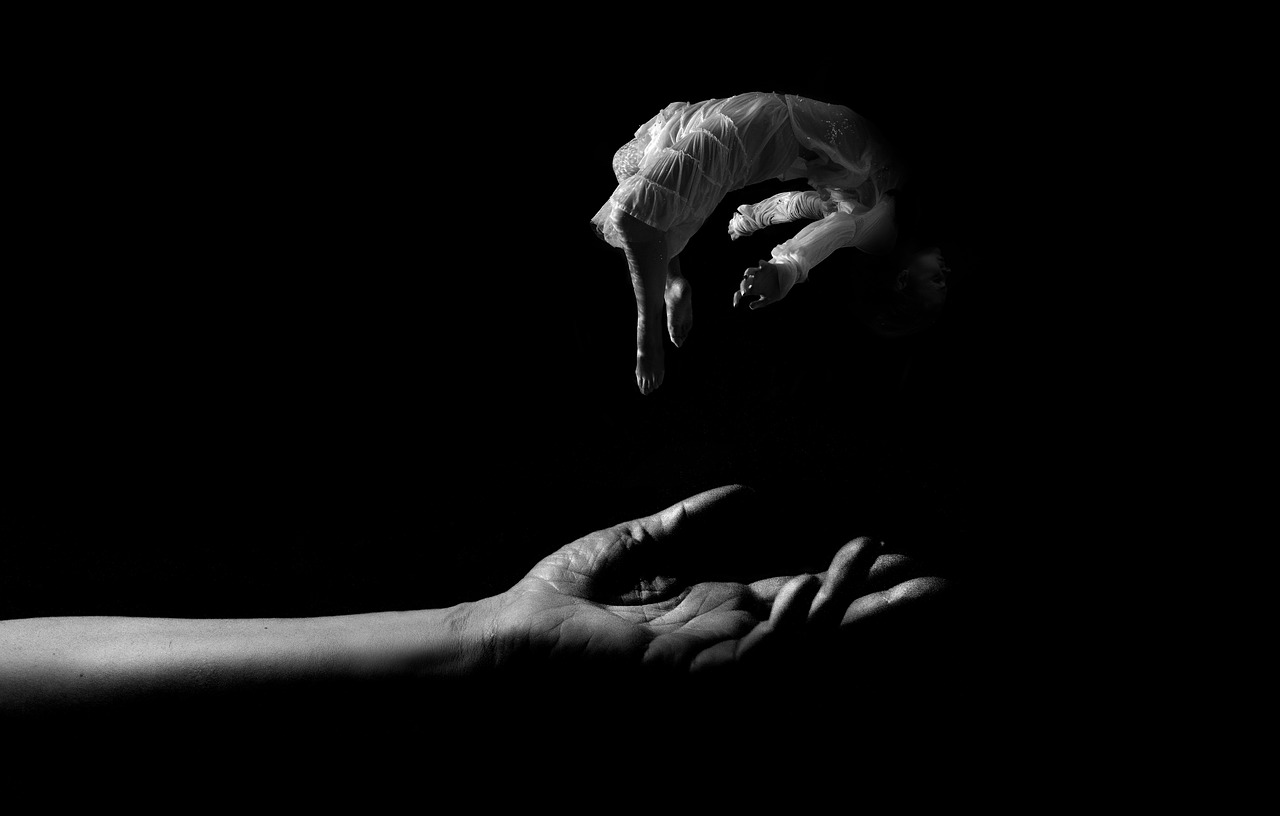
Bad Faith
, or "mauvaise foi" as Sartre referred to it, is a fascinating yet troubling concept that underpins much of his existential philosophy. Essentially, it describes a form of self-deception where individuals refuse to acknowledge their own freedom and responsibility. Imagine a person who feels trapped in a job they dislike but convinces themselves that they have no choice but to stay. This rationalization is a classic example of bad faith. By denying their freedom to choose differently, they escape the anxiety that comes with making a significant life change.
Sartre believed that bad faith is a common coping mechanism in a world filled with uncertainty and absurdity. It allows individuals to evade the weight of their choices by attributing their circumstances to external factors. This can be seen in various aspects of life, from personal relationships to societal roles. For instance, someone might claim, "I can't leave this relationship because I have kids," thereby placing the responsibility for their unhappiness on their children rather than acknowledging their own role in the situation. This denial of freedom can lead to a life that feels unfulfilled and inauthentic.
In Sartre's view, bad faith often manifests in two primary forms:
- Self-Deception: This occurs when individuals consciously or unconsciously lie to themselves about their desires, needs, or capabilities. They might say, "I'm not good enough to pursue my dreams," which allows them to avoid the discomfort of trying and potentially failing.
- Role-Playing: People often adopt societal roles that dictate how they should behave, leading them to conform rather than act authentically. For example, someone might feel pressured to pursue a certain career path because it’s expected, rather than following their passion.
The implications of bad faith are profound. When individuals live in bad faith, they not only deny their own freedom but also limit their potential for growth and self-discovery. Sartre urges us to confront our choices head-on, embracing the discomfort that comes with true freedom. By recognizing and rejecting bad faith, we can start to live more authentically, making choices that truly reflect who we are and what we value.
In conclusion, bad faith is a poignant reminder of the human tendency to shy away from the responsibilities that accompany our freedom. It challenges us to examine our lives critically and encourages a journey toward authenticity. By facing our fears and acknowledging our choices, we can break free from the shackles of self-deception and live a life that is genuinely our own.
- What is bad faith in existentialism? Bad faith refers to the act of self-deception where individuals deny their own freedom and responsibility, often to avoid the anxiety that comes with making choices.
- How can I identify bad faith in my life? Look for patterns where you rationalize decisions or blame external factors for your unhappiness. If you find yourself saying, "I have no choice," it might be a sign of bad faith.
- What are the consequences of living in bad faith? Living in bad faith can lead to a lack of fulfillment and authenticity, as it prevents you from making choices that align with your true self and values.
- How can I overcome bad faith? Start by acknowledging your freedom to choose and confront the fears that hold you back. Embrace the discomfort of making authentic choices, even if they are difficult.
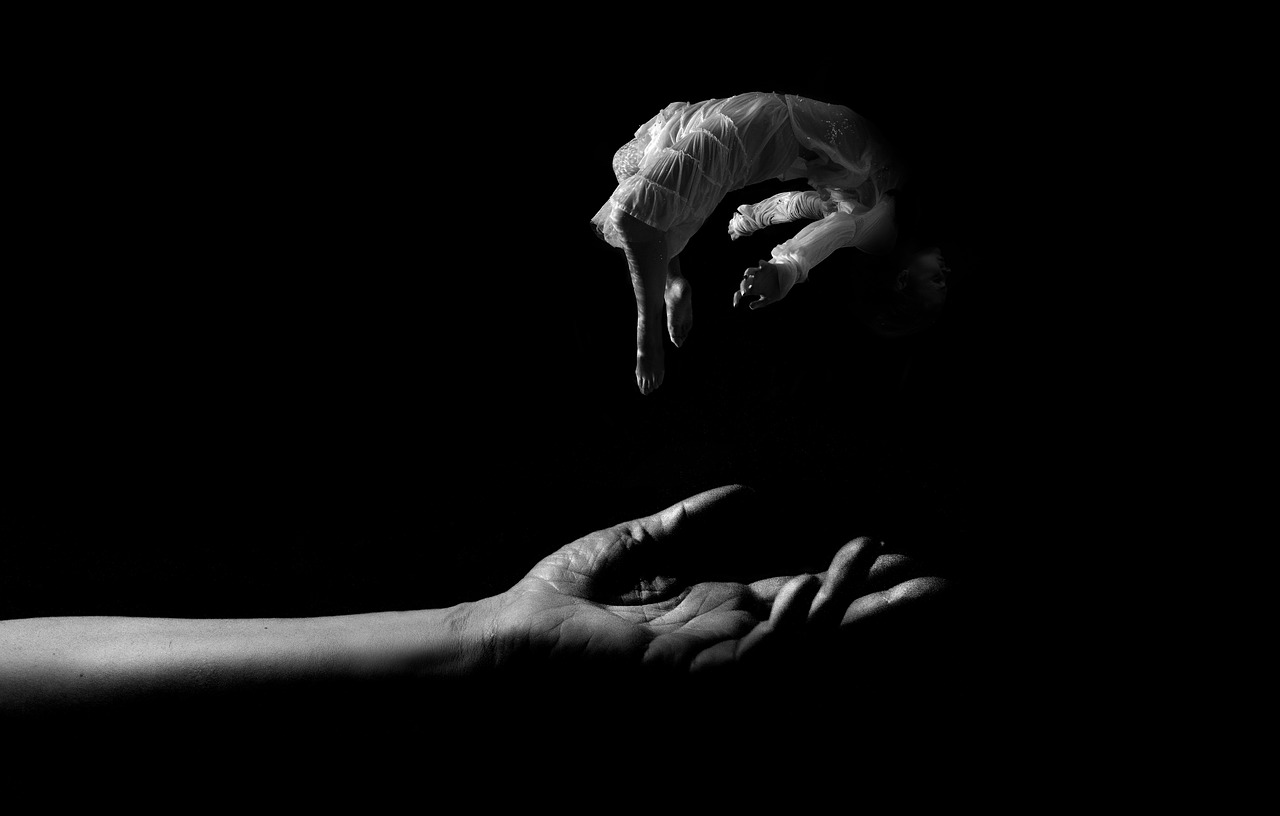
bad faith,
This article explores the key concepts of existentialism as articulated by Jean-Paul Sartre, including freedom, responsibility, and the nature of existence, providing insights into his influential philosophical ideas.
Sartre famously stated that existence precedes essence, suggesting that individuals create their own meaning through actions rather than adhering to predetermined purposes. This subheading delves into this foundational idea of existentialism.
Central to Sartre's philosophy is the notion of radical freedom, which posits that individuals are free to make choices. This section examines the implications of freedom and the weight of responsibility that accompanies it.
With freedom comes the burden of choice. Sartre argues that every decision reflects one's values and beliefs, leading to an exploration of how choices shape identity and existence.
Authenticity involves making choices that are true to oneself. This subheading discusses how Sartre encourages individuals to embrace their freedom and strive for authenticity in their lives.
When we talk about bad faith, we're diving deep into one of Sartre's most intriguing concepts. Bad faith is essentially a form of self-deception. It occurs when individuals deny their own freedom and responsibility, opting instead to conform to societal expectations or external pressures. Imagine a person who stays in a job they despise simply because it's the "safe" choice. They might tell themselves they have no other options, but in reality, they are avoiding the anxiety that comes with making a difficult decision.
Sartre believed that bad faith is a way to escape the anguish that comes with the realization of our freedom. It’s like wearing a mask that hides our true selves. By convincing ourselves that we are trapped or that our choices are limited, we avoid the discomfort of acknowledging our own power to change our circumstances. This self-deception can manifest in various ways:
- Denial of Responsibility: Individuals may claim that their actions are dictated by circumstances beyond their control.
- Conformity: People often go along with the crowd, suppressing their own desires and beliefs to fit in.
- Excuses: Using justifications to avoid taking ownership of one’s choices and their consequences.
In everyday life, bad faith can lead to a profound sense of dissatisfaction. When we live inauthentically, we may experience feelings of emptiness or disconnection. Sartre encourages us to confront this tendency head-on, to peel back the layers of self-deception, and to embrace the discomfort that comes with true freedom. Only by acknowledging our choices and the responsibility they entail can we begin to live authentically and meaningfully.
Sartre describes existential anguish as the feeling of disorientation and confusion in the face of an absurd world. This subheading analyzes the causes of this anguish and its significance in existential thought.
Sartre acknowledges the absurdity of life, arguing that meaning is not inherent but must be created. This section explores how individuals confront the absurd and construct their own significance.
This subheading examines various ways individuals can confront the absurdity of existence, emphasizing the importance of personal agency and creativity in crafting a meaningful life.
Sartre’s existentialism also highlights the role of relationships in shaping identity. This section discusses how interactions with others influence our understanding of freedom and existence.
What is bad faith in existentialism?
Bad faith refers to the act of deceiving oneself to avoid the anxiety that comes with acknowledging one's freedom and responsibility. It involves denying one's own agency and conforming to external pressures.
How can I recognize bad faith in my life?
You can recognize bad faith by examining your decisions. Are you making choices based on societal expectations? Are you using excuses to avoid taking responsibility? Reflecting on these questions can help you identify areas where you may be living inauthentically.
Is bad faith always negative?
While bad faith can provide temporary relief from anxiety, it ultimately leads to dissatisfaction and disconnection from one's true self. Embracing authenticity, despite the discomfort, is essential for a meaningful existence.
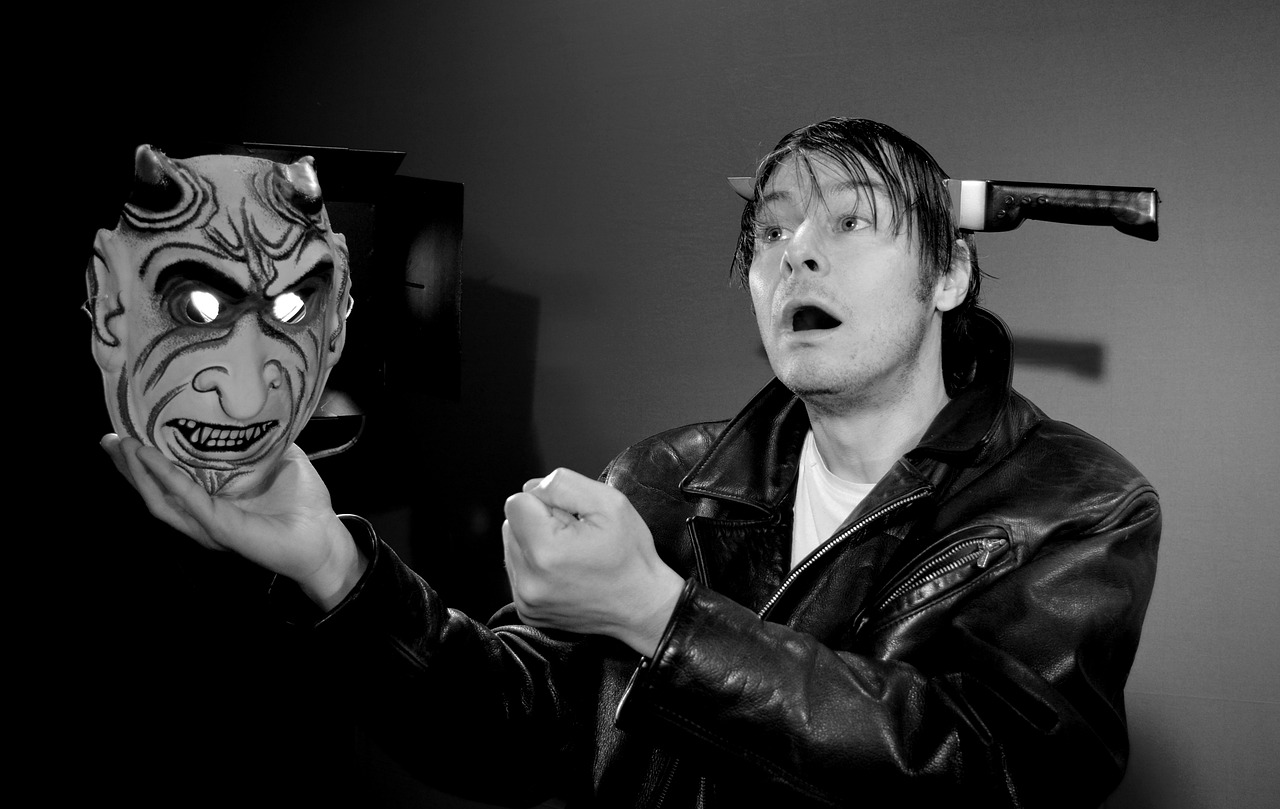
where individuals deceive themselves to escape the anxiety of freedom. This section explores how bad faith manifests in everyday life and its philosophical implications.
This article explores the key concepts of existentialism as articulated by Jean-Paul Sartre, including freedom, responsibility, and the nature of existence, providing insights into his influential philosophical ideas.
Sartre famously stated that existence precedes essence, suggesting that individuals create their own meaning through actions rather than adhering to predetermined purposes. This subheading delves into this foundational idea of existentialism.
Central to Sartre's philosophy is the notion of radical freedom, which posits that individuals are free to make choices. This section examines the implications of freedom and the weight of responsibility that accompanies it.
With freedom comes the burden of choice. Sartre argues that every decision reflects one's values and beliefs, leading to an exploration of how choices shape identity and existence.
Authenticity involves making choices that are true to oneself. This subheading discusses how Sartre encourages individuals to embrace their freedom and strive for authenticity in their lives.
Bad faith is a fascinating yet troubling concept introduced by Sartre, where individuals deceive themselves to escape the anxiety of freedom. This self-deception often manifests in various forms in our everyday lives, leading us to live inauthentic existences. Imagine waking up every day and going through the motions, convinced that your job defines you, or that societal expectations dictate your choices. This is a classic example of bad faith, where one may claim, "I have to do this," rather than acknowledging the freedom to choose otherwise.
In Sartre's view, bad faith is a defense mechanism against the overwhelming responsibility that comes with freedom. It allows individuals to avoid confronting the uncomfortable truths about their lives and choices. For instance, someone might stay in a job they hate, convincing themselves that it's necessary for survival. This rationalization serves as a comforting blanket, shielding them from the anxiety that comes with recognizing their ability to change their circumstances.
Moreover, bad faith can manifest in our relationships. People often play roles that society expects of them, suppressing their true selves to fit in. This can lead to a profound sense of disconnection and unhappiness, as the individual becomes estranged from their authentic desires and needs. Sartre argues that this self-deception ultimately results in a lack of fulfillment, as one is not living a life true to their own values.
To illustrate this concept, consider the following table that summarizes the differences between authentic existence and bad faith:
| Aspect | Authentic Existence | Bad Faith |
|---|---|---|
| Awareness | Full awareness of choices and consequences | Self-deception and avoidance of responsibility |
| Decision-Making | Choices aligned with personal values | Choices based on external expectations |
| Emotional State | Genuine fulfillment and happiness | Disconnection and anxiety |
Ultimately, Sartre's exploration of bad faith invites us to confront our own self-deceptions. It challenges us to break free from the chains of societal expectations and embrace our radical freedom. By acknowledging our choices and taking responsibility for them, we can cultivate a more authentic existence. Are you ready to face the uncomfortable truths about your life? The journey toward authenticity begins with this crucial step.
Sartre describes existential anguish as the feeling of disorientation and confusion in the face of an absurd world. This subheading analyzes the causes of this anguish and its significance in existential thought.
Sartre acknowledges the absurdity of life, arguing that meaning is not inherent but must be created. This section explores how individuals confront the absurd and construct their own significance.
This subheading examines various ways individuals can confront the absurdity of existence, emphasizing the importance of personal agency and creativity in crafting a meaningful life.
Sartre’s existentialism also highlights the role of relationships in shaping identity. This section discusses how interactions with others influence our understanding of freedom and existence.
- What is existentialism? Existentialism is a philosophical movement that emphasizes individual freedom, choice, and the search for meaning in an indifferent universe.
- Who was Jean-Paul Sartre? Jean-Paul Sartre was a French philosopher, playwright, and novelist, known for his contributions to existentialism and his works exploring human freedom and responsibility.
- What does "existence precedes essence" mean? This phrase suggests that individuals are not born with a predefined purpose; instead, they create their own meaning through their actions and choices.
- What is bad faith? Bad faith is a form of self-deception where individuals deny their freedom and responsibility, often by conforming to societal expectations or roles.
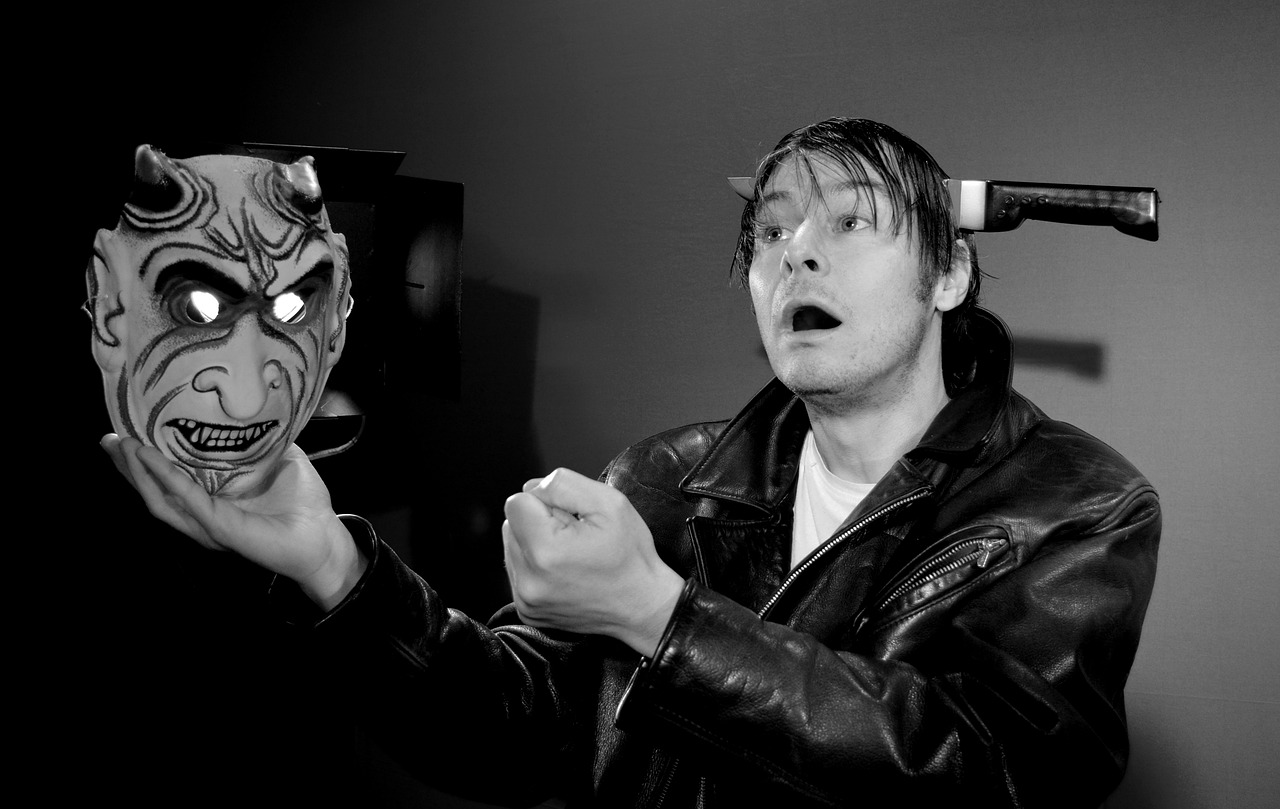
Existential Anguish
Existential anguish, a concept deeply rooted in the philosophy of Jean-Paul Sartre, encapsulates the profound sense of disorientation and confusion that arises when individuals confront the stark realities of existence. Imagine standing at the edge of a vast, empty abyss—this feeling of being lost in a world devoid of inherent meaning is what Sartre refers to as existential anguish. It’s that moment when the comforting structures of society, religion, or tradition crumble, leaving us with the raw, unfiltered experience of our freedom. But why does this happen? Sartre believed that when we fully recognize our absolute freedom, we also become acutely aware of the weight of our choices and the absence of a predetermined path.
This anguish is not merely a fleeting emotion; it’s a fundamental aspect of the human condition. Sartre argues that it emerges from the realization that we are responsible for creating our own essence through our actions. In this light, every decision we make is a reflection of our values, beliefs, and ultimately, our identity. This responsibility can feel overwhelming, as if we are carrying the weight of the universe on our shoulders. The freedom to choose comes with the burden of understanding that our choices define us and that we cannot escape the consequences of those decisions.
To further illustrate this concept, consider the following points:
- Awareness of Freedom: The more we understand our freedom, the more we confront the anxiety that comes with it.
- Self-Reflection: Engaging in self-reflection can amplify feelings of existential anguish as we question our purpose and direction.
- Isolation: Recognizing that others are also free can lead to feelings of isolation, as we grapple with the idea that no one can truly understand our unique struggles.
Moreover, Sartre posits that existential anguish can lead to a transformative experience. While it may initially feel paralyzing, grappling with this anguish can ultimately prompt individuals to seek authenticity in their lives. When faced with the absurdity of existence, we are compelled to create our own meaning and embrace the freedom that comes with it. This process can be likened to an artist standing before a blank canvas, where the absence of predefined shapes and colors allows for limitless creativity. Just as an artist must confront the emptiness to create a masterpiece, we too must confront our existential anguish to forge a meaningful existence.
In essence, existential anguish is a call to action. It urges us to confront the uncomfortable truths of our existence, to embrace our freedom, and to take responsibility for our choices. While this journey may be fraught with anxiety and uncertainty, it also offers the potential for profound personal growth and self-discovery. By acknowledging our anguish, we can begin to navigate the complexities of existence and carve out our own paths in a world that often seems chaotic and devoid of meaning.
- What is existential anguish? Existential anguish is the feeling of disorientation and confusion that arises when individuals confront the absence of inherent meaning in life, as articulated by Jean-Paul Sartre.
- How does Sartre's philosophy relate to freedom? Sartre's philosophy emphasizes that individuals possess radical freedom to make choices, which in turn places the responsibility for those choices squarely on their shoulders.
- Can existential anguish lead to personal growth? Yes, while it may be uncomfortable, confronting existential anguish can lead to greater self-awareness and authenticity in one's life choices.
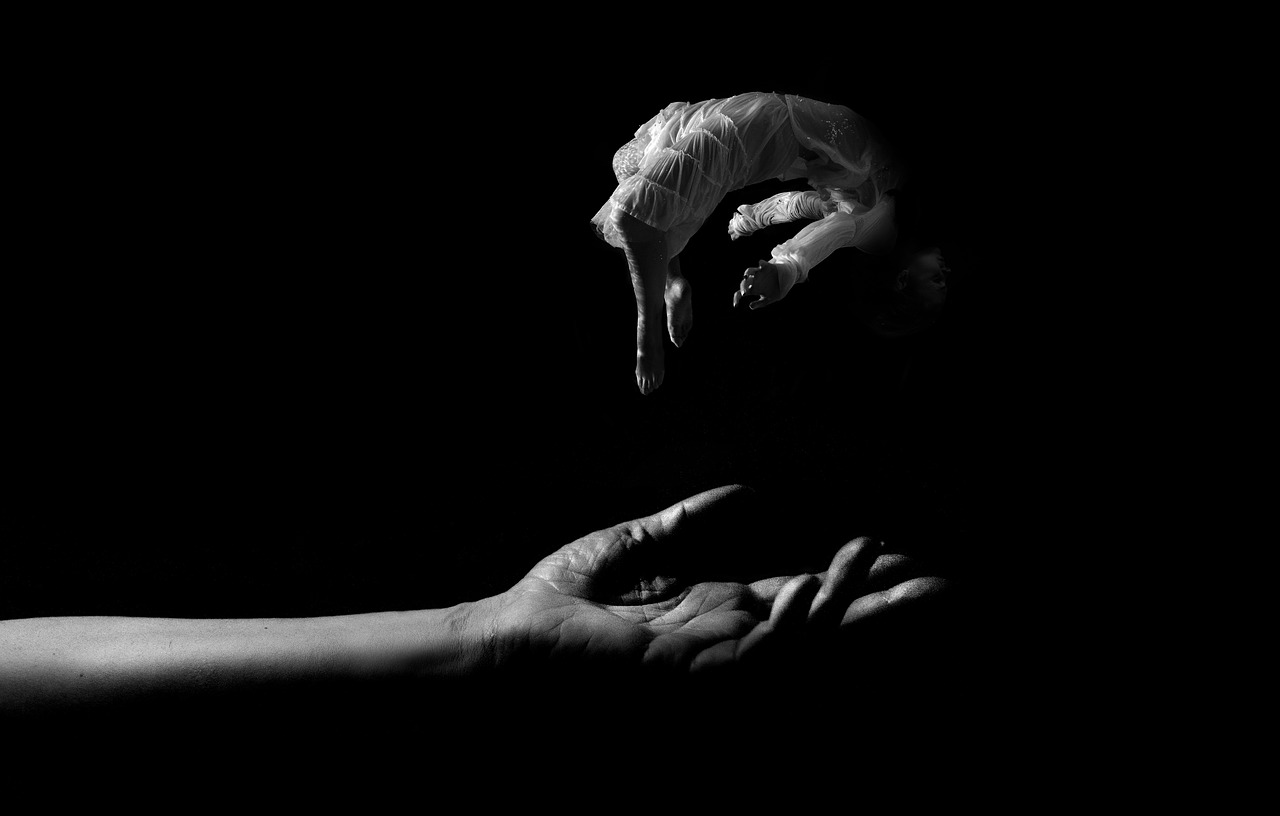
The Absurd and Meaning
In the realm of existential philosophy, Jean-Paul Sartre presents a compelling argument about the nature of life and the search for meaning. He asserts that life is inherently absurd, a notion that can be both liberating and daunting. This absurdity arises from the disconnect between our desire for meaning and the chaotic, indifferent universe we inhabit. Think about it: we humans are constantly seeking purpose, yet we find ourselves in a world that offers none. It's like trying to find a map in a place where the roads don't exist. So, how do we navigate this absurdity?
Sartre encourages individuals to confront this absurdity head-on. Instead of succumbing to despair, he advocates for the idea that meaning is not something that is handed to us on a silver platter. Rather, it is something we must create for ourselves through our actions, choices, and relationships. This perspective shifts the responsibility of meaning-making squarely onto our shoulders. It’s a bit like being the artist of your own life; you hold the brush, and the canvas is waiting for your unique strokes.
To illustrate this point, consider the following aspects of how we confront the absurd:
- Personal Agency: The first step is recognizing that we have the power to shape our own destinies. Every choice we make contributes to the narrative of our lives.
- Creativity: Engaging in creative pursuits allows us to express our individuality and forge meaning in an otherwise indifferent world. Whether it’s art, writing, or even problem-solving in daily life, creativity becomes a vital tool.
- Community and Relationships: Interacting with others can provide a sense of shared purpose. Building connections helps us navigate our absurd existence, as we find solace in shared experiences and collective meaning-making.
By embracing these aspects, we can begin to construct a life that resonates with our values and beliefs. Sartre’s philosophy teaches us that even in a world devoid of inherent meaning, we have the capacity to create significance through our choices and actions. This self-creation is not just a philosophical exercise; it is a call to action for each of us to live authentically.
Ultimately, the absurdity of life challenges us to rise above nihilism and despair. Instead of viewing the lack of predetermined meaning as a burden, we can see it as an opportunity—an invitation to craft our own narratives. In doing so, we not only confront the absurd but also transform it into a canvas for our creativity and freedom. So, the next time you feel overwhelmed by the chaos of existence, remember: you are the artist, and your life is your masterpiece.
- What does Sartre mean by "existence precedes essence"?
This phrase signifies that individuals are not born with a predefined purpose; rather, they create their own essence through actions and choices. - How does Sartre define freedom?
Sartre's notion of freedom is radical; it means that individuals have the autonomy to make choices, but with this freedom comes the weight of responsibility. - What is "bad faith" in Sartre's philosophy?
Bad faith refers to the self-deception individuals engage in to avoid the anxiety associated with absolute freedom and responsibility. - How can one confront the absurdity of life?
By embracing personal agency, engaging in creative pursuits, and nurturing relationships, individuals can find or create meaning in an absurd world.
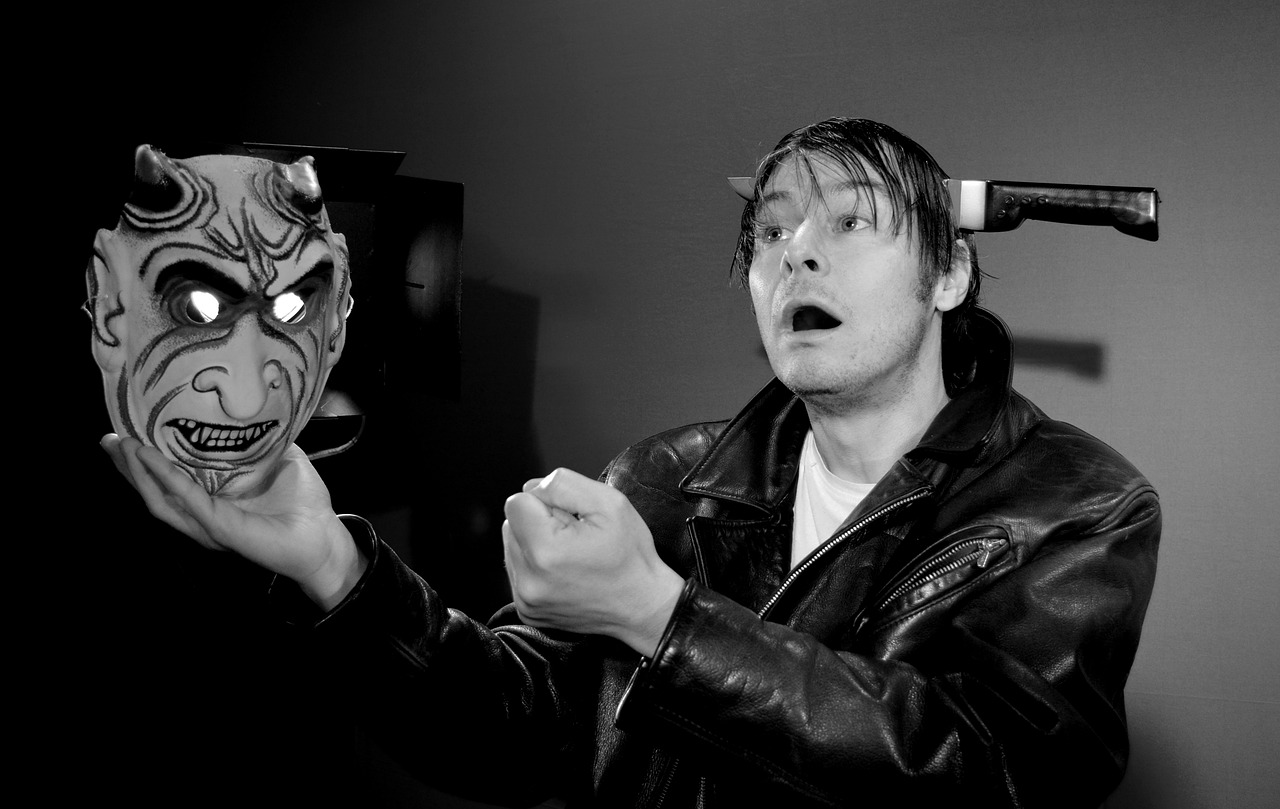
Confronting the Absurd
When we talk about confronting the absurd, we're diving deep into the heart of what it means to exist in a world that often feels chaotic and meaningless. Sartre believed that life is inherently devoid of purpose, and this realization can hit like a ton of bricks. Imagine standing in front of a blank canvas, brush in hand, but no idea what to paint. This is the essence of confronting the absurd: the freedom to create meaning in a universe that offers none. It’s exhilarating yet terrifying, like being on a tightrope without a safety net.
To navigate this absurdity, Sartre suggests that we must embrace our personal agency. This means acknowledging that while we may not control the circumstances of our lives, we do have the power to choose our responses. Think of it like being a ship captain in a storm; while we can’t change the weather, we can steer our vessel. Here are some ways to confront the absurd:
- Embrace Freedom: Recognize that you have the freedom to make choices, even in the face of uncertainty.
- Create Your Own Meaning: Engage in activities that resonate with you, whether it’s art, relationships, or personal projects.
- Accept the Absurd: Acknowledge that life doesn’t come with built-in meaning, and that’s okay.
Moreover, Sartre emphasizes the importance of creativity in crafting a meaningful life. When faced with the absurd, creativity acts as a lifeline. It allows us to express our feelings, thoughts, and struggles, transforming chaos into something tangible. Just like a sculptor chisels away at a block of marble, we can shape our existence through our actions and choices. In this sense, confronting the absurd becomes a form of art, where each decision is a stroke of the brush on the canvas of life.
Additionally, relationships play a crucial role in how we deal with the absurd. Sartre argued that our interactions with others help to shape our understanding of freedom and existence. When we connect with people, we share our experiences, fears, and aspirations, which can provide a sense of comfort amidst the chaos. Think of it as a dance; while each partner has their own steps, together they create a beautiful performance. Through relationships, we not only find support but also a shared sense of purpose that can help us navigate the absurdity of life.
In conclusion, confronting the absurd is not just about recognizing the lack of inherent meaning in life; it's about actively engaging with that reality. It’s about making choices, embracing creativity, and fostering relationships that enrich our existence. By doing so, we can transform the chaos into a canvas of our own making, painting a life that, while perhaps absurd, is nonetheless vibrant and meaningful.
- What does it mean to confront the absurd?
Confronting the absurd involves acknowledging that life lacks inherent meaning and taking active steps to create your own significance through choices and actions. - How can creativity help in dealing with absurdity?
Creativity allows individuals to express their feelings and experiences, transforming chaos into something meaningful and tangible. - Why are relationships important in existentialism?
Relationships help shape our understanding of freedom and existence, providing support and a shared sense of purpose in an otherwise chaotic world.

The Role of Relationships
In Sartre's existential philosophy, the role of relationships is pivotal to understanding how we shape our identities and navigate the complexities of existence. He posits that our interactions with others are not mere background noise in our lives; rather, they are fundamental to the construction of our personal narratives. Think about it: just as a painter uses various colors to create a masterpiece, we use our relationships to add depth and meaning to our existence. Without these connections, our lives could feel like a blank canvas, devoid of vibrancy and significance.
Sartre famously stated that "Hell is other people," a phrase that encapsulates the paradox of human relationships. On one hand, our interactions with others can be a source of joy, support, and understanding. On the other hand, they can also lead to feelings of alienation and conflict. This duality reflects the existential struggle between our desire for connection and the inherent freedom that comes with individuality. When we engage with others, we are often faced with the challenge of balancing our own needs with those of the people around us. This balancing act can lead to profound insights about ourselves and our place in the world.
To further illustrate this point, consider the following aspects of relationships in Sartre's framework:
- Mutual Recognition: Relationships require recognition of each other's freedom. This acknowledgment fosters a sense of belonging while respecting individuality.
- Influence on Identity: Our relationships shape our values and beliefs, often guiding our choices and actions. This influence can be both positive and negative, depending on the dynamics of the relationship.
- Existential Responsibility: We are responsible not only for our choices but also for how we affect others. This responsibility adds another layer to the complexity of human interaction.
Sartre also emphasizes that while we are free to define ourselves, we cannot escape the impact of others on our lives. Each relationship we forge is a reflection of our choices, and in turn, it influences our identity. For instance, think about how friendships can either empower us to pursue our passions or hold us back due to societal expectations. This interplay between freedom and relational dynamics is what makes existentialism so rich and applicable to everyday life.
Ultimately, the role of relationships in Sartre's existentialism is a reminder that we are not solitary beings. Our existence is intertwined with others, and it is through these connections that we can explore the depths of our freedom and responsibility. By embracing this complexity, we can find a more authentic way to live, one that honors both our individuality and our shared humanity.
- What is the main idea behind Sartre's existentialism?
Sartre's existentialism emphasizes that existence precedes essence, meaning individuals create their own meaning through choices and actions rather than following predetermined paths. - How does Sartre view relationships?
Sartre sees relationships as essential to shaping our identities and understanding freedom, highlighting both the joy and conflict they can bring to our lives. - What does "Hell is other people" mean?
This phrase captures the paradox of human relationships, suggesting that while we seek connection, our interactions can also lead to feelings of alienation and conflict. - How can we find authenticity in our relationships?
Authenticity involves recognizing both our freedom and the freedom of others, allowing us to engage in meaningful connections while remaining true to ourselves.
Frequently Asked Questions
- What does Sartre mean by "existence precedes essence"?
Sartre's assertion that "existence precedes essence" means that individuals are not born with a predefined purpose. Instead, we create our own essence through our actions and choices. It's like being a blank canvas; we paint our own picture through the decisions we make in life.
- How does Sartre define freedom?
For Sartre, freedom is radical and absolute. He believes that we are free to make choices in every aspect of our lives. However, this freedom comes with the weight of responsibility, as every choice reflects our values and beliefs. It's a double-edged sword—while we have the power to shape our lives, we also bear the burden of our decisions.
- What is "bad faith" according to Sartre?
"Bad faith" is a concept Sartre uses to describe the self-deception people engage in to escape the anxiety that comes with freedom. It's like putting on blinders to avoid facing the truth about our choices and responsibilities. When we deny our freedom or blame external factors for our situation, we fall into bad faith.
- What causes existential anguish?
Existential anguish arises from the realization of our freedom and the inherent absurdity of life. When we confront the idea that life lacks inherent meaning, it can lead to feelings of disorientation and confusion. This anguish is significant in existential thought, prompting us to seek our own meaning in an unpredictable world.
- How can individuals confront the absurdity of existence?
Confronting the absurd involves embracing our freedom and taking personal agency in crafting a meaningful life. Sartre encourages us to be creative and proactive in shaping our existence, rather than passively accepting the absurdity around us. It's about finding joy and significance in our choices, despite life's inherent chaos.
- What role do relationships play in Sartre's existentialism?
Relationships are crucial in shaping our identity and understanding of freedom. Sartre argues that our interactions with others influence our choices and perceptions of existence. Through relationships, we can explore our freedom and the responsibilities that come with it, highlighting the interconnectedness of our lives.


